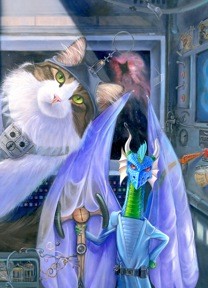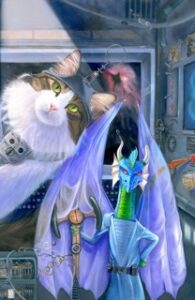If intelligent life is abundant throughout the galaxy, then where are they? — Fermi’s Paradox, Enrico Fermi, 1942.
Since 1942 the paradox has only deepened. Scientists have found many Earth-like planets and shown that creating the amino acid building blocks of life is relatively easy. The standard assumption is that since intelligence is a beneficial survival characteristic, life on nearly every planet will eventually evolve intelligence. Yet scientists have probed the galaxy for the artificial broadcasts of a super-civilization. They have found nothing.
In theory it’s possible that a civilization sufficiently advanced to have space flight would be so beneficent to undeveloped species that they would leave young planets like Earth undisturbed. After all, isn’t that what humanity will do when we reach the stars? I doubt it. And it happens that all of the many civilizations out there are beneficent? The probability becomes minuscule.
No, we don’t see any signs of intelligent life out there because they are hiding. The only question is, what are they hiding from? What could be more fearsome than an advanced interstellar civilization? They must be hiding from each other–because when they are not hiding, they are fighting.
Why haven’t we seen signs of war, you ask? Things like exploding stars (oh, novae) or annihilated spaceships (oh, GRB–Gamma Ray Bursts).
Yes, novae and GRBs can be explained as natural phenomena. But let’s say you are an advanced technological civilization and do not want to draw attention to yourself. Wouldn’t you disguise the blast of your weapons as a natural process?







You must be logged in to post a comment.